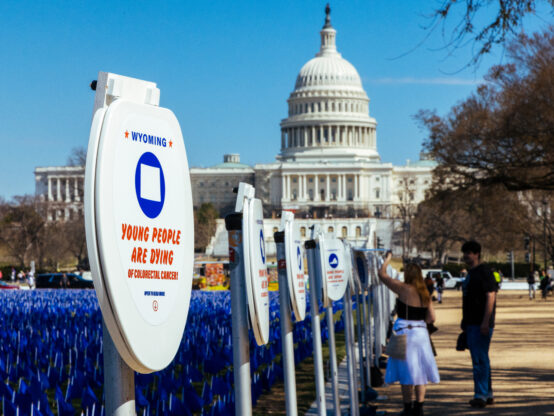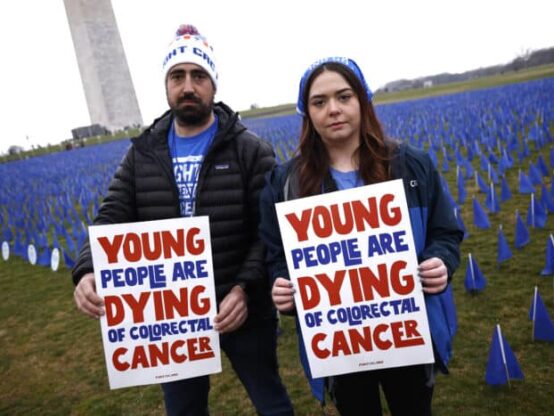
Federal Advocacy Priorities
Fight Colorectal Cancer is on the ground in Washington, D.C., educating policymakers and ensuring that the colorectal cancer community is represented when and where policy is created.
By 2030, colorectal cancer is projected to be the #1 cancer killer for those under 50.
This is not new. For the past several decades, young people have seen an increase in colorectal cancer diagnoses. But federal investment and innovation have not kept pace. As a result, over 60% of colorectal cancer patients under 50 are diagnosed at a late stage when the disease is challenging to treat, and there are few treatment options.
Learn about our Policy Priorities:
CDC Screening Program
Support $51 million for the Centers for Disease Control and Prevention (CDC) Colorectal Cancer Control Program (CRCCP) in the FY25 Labor, Health and Human Services appropriations bills.
DoD Research Program
Provide $20 Million to Create a Colorectal Cancer Research Program within the Department of Defense(DoD) Congressionally Directed Medical Research Program (CDMRP).
CRC Caucus
Urge your U.S. House Representative to be a champion for colorectal cancer and change the statistics around the disease by joining the Colorectal Cancer Caucus.
Funding for NIH & NCI
Increase funding for critical medical research at the National Institutes of Health (NIH) and the National Cancer Institute (NCI).
Take action Today
Other Issues We’re Fighting For
Oral Chemotherapy Parity
Access to Clinical Trials
Health Disparities
Access to Biomarker Testing
Young Adult Cancer Survivorship Issues
Prevention & Screening
Access to Care
Payne Bill
Quality of Care
Medicare and Medicaid
Pre-existing Conditions Protections
Annual & Lifetime Coverage Caps
Guaranteed Renewability
Pharmaceutical Pricing
Genetic Testing Bills
Barbosa Act
State Advocacy Priorities
With advocates across the country, we can be on the ground advocating for policies that will increase access to colorectal cancer screening in every community. Learn about the state advocacy priorities we are currently monitoring.
Become an Advocate
"*" indicates required fields




